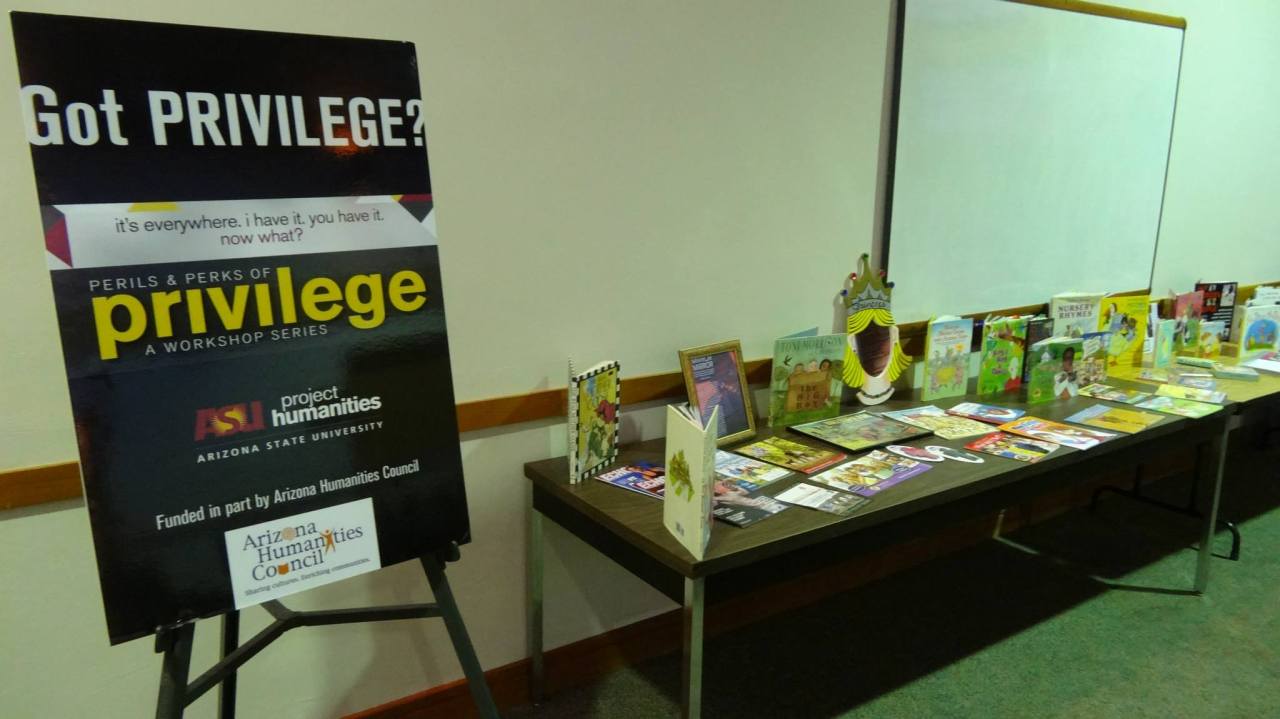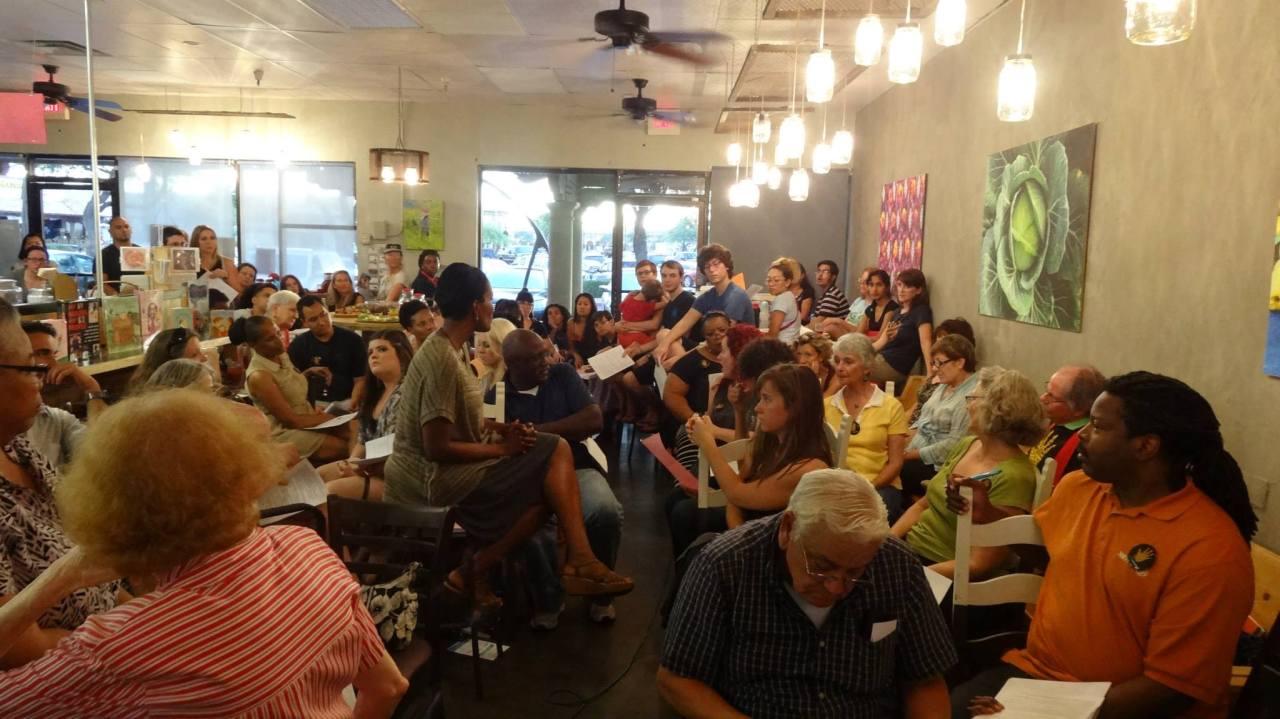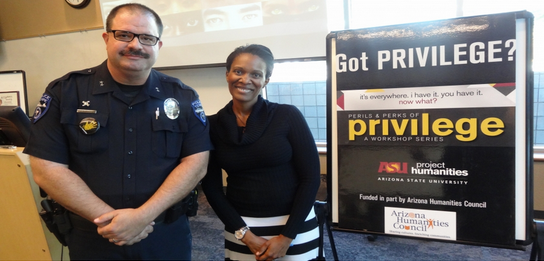Sunday, September 20, 2015
By now I'm sure everyone has heard the tale of Ahmed Mohamed, the teenager who was put in handcuffs for bringing his homemade clock to school. This incident is a shameful example of predjudice getting out of hand, but has luckily turned out for the better for Ahmed in all the support he has found following his suspension. Since the story has spread, a lot of questions have been asked over the scenario. Did President Obama really need to get involved? Does the clock work? Does Sarah Palin really still believe that it's "more than a clock?" However, the one that I've read above any other is:
"Whould this have happebed if he was white?"
I read a pretty interesting article concerning this on The New York Post.
While I don't agree with the claim of this whole story being a "False, convient tale of racism" I do think the author's questions pose for a compelling conversation. Is the issue bias? Or is it something else?
In my opinion, it is difficult to deny that Islamophobia had a minor (if not major) role in Amed's arrest and suspension. However, I have to admit, when I first heard the story, my mind immediately went to an event that happened in my own community this past Wednesday, when a portion of the freeway was shutdown for an hour because of a cooler on the side of the road.
The New York Post article also rattles off some examples of overeactions to certain, unthreatening behavors in schools. Some students mentioned are white, some are not.
We can all agree that the reactions are extreme, we can all agree that the way they were handeled completely wrong, but what about the source of the behavior? From what illness is this a sympotom of?
When I play this out as happening at my old high school, which was predominantly white, I can very easily see a student proudly showing off his clock, and security thinking nothing of it, but at the same time, I can't rule out the possibility of the situation getting out of hand in the same way as it did for Ahmed, because I know it happenes all the time.
So, would this have happened to one of Ahmed's white classmates had they brought in a clock?
It's hard to say, but I think the greatest issue that's floated to the top of this entire ordeal is society's knee-jerk reaction to look for something to roll our eyes at, rather than allowing it to motivate us to try for something better. It always has to be dilluded by some debate. What were the administrators who called the police thinking? What was the racist-to-non-racist ratio? Who knows? Who cares?
It was another line added to the sad song of discrimination that too many minorities hear thanks to society's branding of all non-whites as violent and that's should matter.
It should have stopped before Treyvon.
It should have stopped before Tamir.
It should stopped before Ahmed.
How many more children need to fall victim before we admit that yes, racism is a problem, racism is the problem? I fear for a country that keeps asking why white kids aren't getting free white house tours instead of why black kids are getting shot.
But that's just me. Like I said before, I think this topic provides for some really, really compelling discussion, so for anybody reading this, I am personally challanging you to get out of your comfort zone and to share your opinion. What was your reaction to the story when you first heard it? What connections did you make? What do you think is the greater issue? Please, contribute below!
"Whould this have happebed if he was white?"
I read a pretty interesting article concerning this on The New York Post.
While I don't agree with the claim of this whole story being a "False, convient tale of racism" I do think the author's questions pose for a compelling conversation. Is the issue bias? Or is it something else?
In my opinion, it is difficult to deny that Islamophobia had a minor (if not major) role in Amed's arrest and suspension. However, I have to admit, when I first heard the story, my mind immediately went to an event that happened in my own community this past Wednesday, when a portion of the freeway was shutdown for an hour because of a cooler on the side of the road.
The New York Post article also rattles off some examples of overeactions to certain, unthreatening behavors in schools. Some students mentioned are white, some are not.
We can all agree that the reactions are extreme, we can all agree that the way they were handeled completely wrong, but what about the source of the behavior? From what illness is this a sympotom of?
When I play this out as happening at my old high school, which was predominantly white, I can very easily see a student proudly showing off his clock, and security thinking nothing of it, but at the same time, I can't rule out the possibility of the situation getting out of hand in the same way as it did for Ahmed, because I know it happenes all the time.
So, would this have happened to one of Ahmed's white classmates had they brought in a clock?
It's hard to say, but I think the greatest issue that's floated to the top of this entire ordeal is society's knee-jerk reaction to look for something to roll our eyes at, rather than allowing it to motivate us to try for something better. It always has to be dilluded by some debate. What were the administrators who called the police thinking? What was the racist-to-non-racist ratio? Who knows? Who cares?
It was another line added to the sad song of discrimination that too many minorities hear thanks to society's branding of all non-whites as violent and that's should matter.
It should have stopped before Treyvon.
It should have stopped before Tamir.
It should stopped before Ahmed.
How many more children need to fall victim before we admit that yes, racism is a problem, racism is the problem? I fear for a country that keeps asking why white kids aren't getting free white house tours instead of why black kids are getting shot.
But that's just me. Like I said before, I think this topic provides for some really, really compelling discussion, so for anybody reading this, I am personally challanging you to get out of your comfort zone and to share your opinion. What was your reaction to the story when you first heard it? What connections did you make? What do you think is the greater issue? Please, contribute below!
Sunday, September 13, 2015
A lot of the posts on this blog are based off of articles on other social justice websites. This week, i decided it was time for a change. I searched through my favorite websites, Psychology Today, for some insight on unconscious bias and what I found was an article that both shocked and impressed me.
Check it out here.
Dr. Mikhail Lyubansky expands on some issues outlined in a 2012 W.K Kellogg Foundation panel on "Unconscious Bias and Race." The issue is introduced with the horrifying study that revealed that Doctors actually treat patients different based on the color of their skin. They give them less pain medication, they're more reluctant to do strenuous procedures on them, and more likely to perform less desirable solutions like lower -body amputations for diabetics.
With data like this, both Lyubansky and panelists argue, it is impossible to deny that racial bias exists, and yet so few are willing to admit that unconscious bias is an issue, that racism is just a left-wing urban legend.
Psychologists argue that this bias is nothing to be ashamed of. Our brains naturally categorize everyday items into groups to make more sense of them, and the very same applies when it comes to people. But just because it's normal, doesn't mean it's okay. The longer the biases go unknown, the more harmful they can be, because the deeper they become ingrained into one's logic.
My favorite point was the following:
“There are three types of not knowing,”[John Powell, director of the Haas Center for Diversity and Inclusion and Robert D. Haas Chancellor’s Chair in Equity and Inclusion at the University of California Berkeley] explained: 1. What we can’t know, like how many neurons are firing at any given moment, 2. What we don’t care to know, like the color of the car we pass at a particular intersection, and 3. What we don’t want to know. When we talk about racism, we usually talk about #2 and #3, and those are important conversations to be having. We all need to care. We all need to want to know. But #1 is important as well."The article very prophetically describes a series of repercussions for unchecked bias that we are seeing here today. It's a pretty old piece, but overall, I think it's a good read because it goes over a lot of points that should made included into the conversation of unconscious bias, many of which weren't even mentioned in this blog post.
So the real question is, do you disagree? What stuck out to you?
Sunday, September 6, 2015
On 7:30 PM by Unknown in class, gender, LGBTQIA, linguistic, race, Rachel Sondgeroth, religion, solutions No comments
Privilege. I have it. You have it. Now what?
I've come to realize that I've drilled the importance of self-reflection into this blog, but not once have I described what self-reflection is, or what it looks like in the context of privilege. I'm going to try to fix that as best as I can.
Self-reflection, in layman's terms, is "meditation or serious thought about one's character, actions, and motives." It's taking a moment in your life to pause and critically contemplate the nature of your life, your self, and your actions. In a culture where we are all about self-validation, all about instant gratification, and life is constantly on the go, go, go, we have reached a destitute poverty of self-reflectors. Its gotten to a point where we don't even know what it looks like anymore. We don't even know where to begin.
Is self-reflecting self questioning?
Is it investigating? Excavating?
How long does it take?
Ten minutes?
Ten years?
I think the answer varies from person to person, but reflection in the context of privilege, in my opinion, is mostly based on observations that lead to an irreversible sort of awareness. It's an everlasting process. With different experiences, you become aware of different kinds of privilege. For example, I'd never really thought of able-bodied privilege until I started writing for this blog.
The real challenge comes when we start to deny the privilege that we have discovered, when we blow off multiple observations we've made as irrelevant to the conversation of unconscious bias.
A great example of the self-reflection process can be read in this article from the Huffington Post.
Gloria Atanmo exemplifies what it is to critically dissect observed disparities and sort them into privileges she has, many of which (such as African-American Privilege) she'd never consider a privilege previously .
Self-reflection varies on the person of course. What is reflection to me, to Atanmo, or her editor, could be entirely different from somebody else's "aha!" moment in privilege.
So what is self-reflection to you? Have you had any big "aha" moments worth that completely shifted your understanding of privilege?
Feel free to share in the comments below!
Subscribe to:
Posts (Atom)
Search
Popular Posts
-
This weekend everyone on my Facebook feed seemed to be up in arms over Jaden Smith wearing a dress to coachella. I don't really und...
-
Last week I came across an article arguing that the word "thug" is the new "n----r." Could this be true? This ...
-
Earlier this week Disney released its design for their first Latina princess ever. Corks were blown off of campaign bottles, parades fill...
Powered by Blogger.


